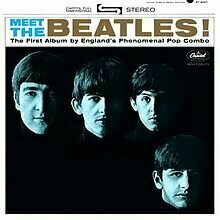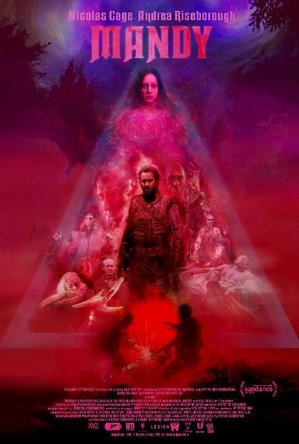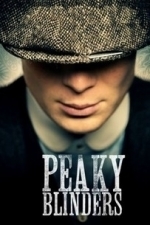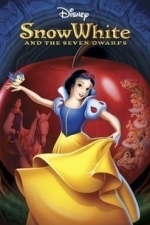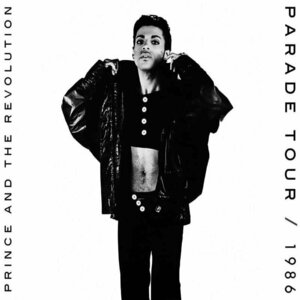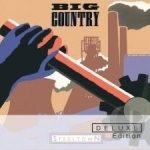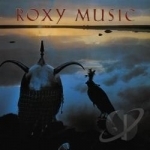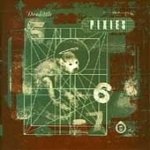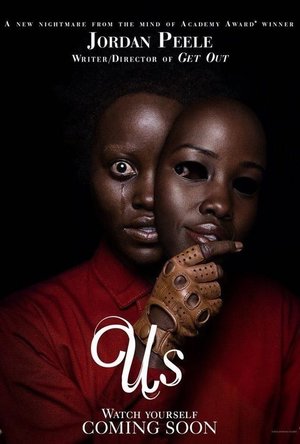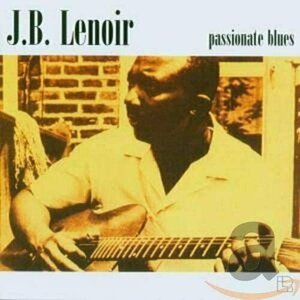Search
Search results
Lee Ronaldo recommended Meet The Beatles! by The Beatles in Music (curated)
Jesters_folly (230 KP) rated Mandy (2018) in Movies
Sep 25, 2019
Contains spoilers, click to show
Red Miller (Nicholas Cage) is sent on a rampaging quest for vengeance when an evil cult abducts and kill his partner, Mandy Bloom.
The story is simple, Mandy and Red live alone in a forest. By chance Mandy is spotted by a cult leader who decided that he wants her to join him. Things don’t go to plan and Mandy ends up dead and Red starts on a quest for revenge. Simple and familiar, it’s not an uncommon plot, however Mandy is part film, part drug filled dream with snippets of animation thrown in, overlaid with a psychedelic, prog rock soundtrack. It has drugs, cults, demonic, slipknot esc bikers, (male) nudity, chainsaws and crossbows, religious parables and Jesus parallels. There is a metaphorical decent to hell and there is Nicholas Cage. All this is shot with constantly changing, coloured filters and distorted voices.
You can probably tell that Mandy isn’t for everyone, at times the film feels like an Italian horror, something like Suspiria or Deep Red and other time it seems like someone has brought a 70’s or 80’s rock/metal album cover to life. Throw in some animation that would be at home in ‘Heavy Metal’ Magazine, turn the crazy dial up to 11 and let Nicolas Cage (slowly) off the sanity leash and you have Mandy.
There are plot point that are not explained, for example Red suddenly has a friend who has a cross bow stored away for him and Red suddenly has a forge and knows how to use it. Is Mandy some kind of witch and, of course, is Red dead at the end.
I would say that there are some crazy scenes but the whole film is crazy but it does lead to some great scene’s like a chainsaw duel.
As I said, Mandy isn’t for everyone, it has a simple plot that has been turned in to a surreal nightmare so if you don’t like weird don’t watch this.
Mandy is also slow to get started as it builds up the atmosphere. I think that, if the film kept the atmosphere it starts with it could have been a similar tone to something like Midsommar however by the halfway point it has past that and, by the end the film just takes a head dive down the rabbit hole (almost literally).
Given all that I found it hard to rate, it has the feel of a 70’s horror and an 80’s grindhouse, some of the filters make it hard to understand some of the lines and the colour filters were disturbing and distracting although most of this was on purpose but over all I did enjoy it.
The story is simple, Mandy and Red live alone in a forest. By chance Mandy is spotted by a cult leader who decided that he wants her to join him. Things don’t go to plan and Mandy ends up dead and Red starts on a quest for revenge. Simple and familiar, it’s not an uncommon plot, however Mandy is part film, part drug filled dream with snippets of animation thrown in, overlaid with a psychedelic, prog rock soundtrack. It has drugs, cults, demonic, slipknot esc bikers, (male) nudity, chainsaws and crossbows, religious parables and Jesus parallels. There is a metaphorical decent to hell and there is Nicholas Cage. All this is shot with constantly changing, coloured filters and distorted voices.
You can probably tell that Mandy isn’t for everyone, at times the film feels like an Italian horror, something like Suspiria or Deep Red and other time it seems like someone has brought a 70’s or 80’s rock/metal album cover to life. Throw in some animation that would be at home in ‘Heavy Metal’ Magazine, turn the crazy dial up to 11 and let Nicolas Cage (slowly) off the sanity leash and you have Mandy.
There are plot point that are not explained, for example Red suddenly has a friend who has a cross bow stored away for him and Red suddenly has a forge and knows how to use it. Is Mandy some kind of witch and, of course, is Red dead at the end.
I would say that there are some crazy scenes but the whole film is crazy but it does lead to some great scene’s like a chainsaw duel.
As I said, Mandy isn’t for everyone, it has a simple plot that has been turned in to a surreal nightmare so if you don’t like weird don’t watch this.
Mandy is also slow to get started as it builds up the atmosphere. I think that, if the film kept the atmosphere it starts with it could have been a similar tone to something like Midsommar however by the halfway point it has past that and, by the end the film just takes a head dive down the rabbit hole (almost literally).
Given all that I found it hard to rate, it has the feel of a 70’s horror and an 80’s grindhouse, some of the filters make it hard to understand some of the lines and the colour filters were disturbing and distracting although most of this was on purpose but over all I did enjoy it.
Rat (1 KP) rated Peaky Blinders - Season 1 in TV
Mar 28, 2018
Forget everything you think you know about period drama
It would be easy to dismiss Peaky Blinders as just a British drama. It would be easy to dismiss it as just a period piece. It would be easy to claim that it was just a British Boardwalk Empire. You'd be so wrong to do so.
Every part of Peaky Blinders is perfection. From the superb acting of its regular cast (Cillian Murphy on a tv show? Sign me up!) to a roster of featured guests (Sam Neill? Tom Hardy? Adrien Brody? Who did the casting director sell their soul to, anyway?) to the use of colour and an outlaw music soundtrack that shouldn't work, but does (Nick Cave? PJ Harvey? Tom Waits? David Bowie? On a period drama? What is this? Freaking genius, that's what.)
Shortly after the end of the first World War, a family of Irish gypsy (their word, not mine) - blooded Birmingham bookmakers tries to recover from the horrors of that war and build up their business. Second oldest, Tommy Shelby (played expertly by Cillian Murphy who manages to play a gangster who is both ruthless and fragile with the ability to break your heart with a single look), came back from the war broken by his experiences, but determined to rise far beyond the limitations of his Small Heath upbringing. Not only does he have the expected clashes with those who want to keep him from growing his business (both criminal rivals and the police) but he has a family to run (with all the interpersonal conflicts that entails). All of this is set against a backdrop of political turmoil from the IRA and the rise of communist sympathy in the UK.
You shouldn't like Tommy Shelby, but he is written and acted so well that you won't be able to not like him. The same can be said for older brother, Arthur, younger siblings John, Ada, and Finn. If you don't love Aunt Polly, then you must have a problem with strong female characters.
Steven Knight has taken a world told to him through family legend and turned it into a world that you will be eager to inhabit an hour (or, if you're like everyone I know, a season) at a time. He writes a period drama that doesn't feel dated. The characters and their struggles are as relevant today as they were nearly a hundred years ago.
Take a chance on the show with the weird name and discover why there are very few casual Peaky Blinders fans. There's a reason why the late, great David Bowie was a huge fan and made sure that they would have a song from his last album before he died. There's a reason the show's dated fashion and hairstyles are making a comeback, why Peaky Blinders pubs and pub nights are popping up all over. It's that good. Check it out for yourself.
Every part of Peaky Blinders is perfection. From the superb acting of its regular cast (Cillian Murphy on a tv show? Sign me up!) to a roster of featured guests (Sam Neill? Tom Hardy? Adrien Brody? Who did the casting director sell their soul to, anyway?) to the use of colour and an outlaw music soundtrack that shouldn't work, but does (Nick Cave? PJ Harvey? Tom Waits? David Bowie? On a period drama? What is this? Freaking genius, that's what.)
Shortly after the end of the first World War, a family of Irish gypsy (their word, not mine) - blooded Birmingham bookmakers tries to recover from the horrors of that war and build up their business. Second oldest, Tommy Shelby (played expertly by Cillian Murphy who manages to play a gangster who is both ruthless and fragile with the ability to break your heart with a single look), came back from the war broken by his experiences, but determined to rise far beyond the limitations of his Small Heath upbringing. Not only does he have the expected clashes with those who want to keep him from growing his business (both criminal rivals and the police) but he has a family to run (with all the interpersonal conflicts that entails). All of this is set against a backdrop of political turmoil from the IRA and the rise of communist sympathy in the UK.
You shouldn't like Tommy Shelby, but he is written and acted so well that you won't be able to not like him. The same can be said for older brother, Arthur, younger siblings John, Ada, and Finn. If you don't love Aunt Polly, then you must have a problem with strong female characters.
Steven Knight has taken a world told to him through family legend and turned it into a world that you will be eager to inhabit an hour (or, if you're like everyone I know, a season) at a time. He writes a period drama that doesn't feel dated. The characters and their struggles are as relevant today as they were nearly a hundred years ago.
Take a chance on the show with the weird name and discover why there are very few casual Peaky Blinders fans. There's a reason why the late, great David Bowie was a huge fan and made sure that they would have a song from his last album before he died. There's a reason the show's dated fashion and hairstyles are making a comeback, why Peaky Blinders pubs and pub nights are popping up all over. It's that good. Check it out for yourself.
BankofMarquis (1832 KP) rated Snow White and the Seven Dwarfs (1937) in Movies
Oct 6, 2018
Still the "Fairest of Them All"
It's always a fear of mine when I go back to visit a beloved film of mine - especially a film that was beloved to me in my childhood. Will it hold up? Is it as good as I remember it? Will the re-visitation tarnish the precious memory of this film that I have?
I am happy to report that, upon a fresh viewing of the first full length animated film every, that I can still declare SNOW WHITE AND THE SEVEN DWARFS "the fairest of them all".
Made in 1937, by the visionary Walt Disney, this film defies the odds - many calling it "Walt's Folly". No one had attempted a full length animated film before and the skeptics were many, but what Walt knew is that he had all the standard elements of a good story - a heroine we can root for, an evil villain, some comic characters that can help us laugh (and cry) and, more importantly, he had the skillful craftsmen of the Walt Disney Studios that can pull off such a feat.
And...pull it off they did! This film is gorgeous and lush to look at. Upon this viewing, I was drawn to the background, and the edges of the frame, marveling at the detail that was interwoven into each, hand drawn imagery - giving this tapestry a lushness and thickness heretofore unseen on the screen.
As for the story of the film - and the film itself - Disney was smart enough to know that "less is more". The film is compact - running a relatively quick 83 minutes - this was a two-fold solution. (1) It helped move the film along at a sprightly pace, never once resting or losing energy and (2) this means that the artists only had to draw what was necessary for this streamlined story.
The music, of course, is wonderful and important part of this film. This was one of the first movie musicals, and was the first film to release a Soundtrack Album. From "Some Day My Prince Will Come" to "I'm Wishing" to "Heigh-Ho" and "Whistle While You Work", the songs moved the story forward and added depth to the characters portrayed on the screen.
If you haven't caught this film in awhile, I heartily recommend you check it out - it works for young and old alike. A good film to share with children of today, to show them what lush, hand drawn animation looks like. Come for the fun of the Dwarfs and the Villainy of the Evil Queen, stay for the richness of the tapestry and the attention to detail that a true classic film portrays.
Letter Grade: A+
10 (out of 10) stars and you can take that to the Bank (ofMarquis)
Next Month: WRECK-IT RALPH and (of course) the sequel RALPH BREAKS THE INTERNET (coming to theaters in November).
I am happy to report that, upon a fresh viewing of the first full length animated film every, that I can still declare SNOW WHITE AND THE SEVEN DWARFS "the fairest of them all".
Made in 1937, by the visionary Walt Disney, this film defies the odds - many calling it "Walt's Folly". No one had attempted a full length animated film before and the skeptics were many, but what Walt knew is that he had all the standard elements of a good story - a heroine we can root for, an evil villain, some comic characters that can help us laugh (and cry) and, more importantly, he had the skillful craftsmen of the Walt Disney Studios that can pull off such a feat.
And...pull it off they did! This film is gorgeous and lush to look at. Upon this viewing, I was drawn to the background, and the edges of the frame, marveling at the detail that was interwoven into each, hand drawn imagery - giving this tapestry a lushness and thickness heretofore unseen on the screen.
As for the story of the film - and the film itself - Disney was smart enough to know that "less is more". The film is compact - running a relatively quick 83 minutes - this was a two-fold solution. (1) It helped move the film along at a sprightly pace, never once resting or losing energy and (2) this means that the artists only had to draw what was necessary for this streamlined story.
The music, of course, is wonderful and important part of this film. This was one of the first movie musicals, and was the first film to release a Soundtrack Album. From "Some Day My Prince Will Come" to "I'm Wishing" to "Heigh-Ho" and "Whistle While You Work", the songs moved the story forward and added depth to the characters portrayed on the screen.
If you haven't caught this film in awhile, I heartily recommend you check it out - it works for young and old alike. A good film to share with children of today, to show them what lush, hand drawn animation looks like. Come for the fun of the Dwarfs and the Villainy of the Evil Queen, stay for the richness of the tapestry and the attention to detail that a true classic film portrays.
Letter Grade: A+
10 (out of 10) stars and you can take that to the Bank (ofMarquis)
Next Month: WRECK-IT RALPH and (of course) the sequel RALPH BREAKS THE INTERNET (coming to theaters in November).
Britt Daniel recommended Parade by Prince and The Revolution in Music (curated)
James Dean Bradfield recommended Steeltown by Big Country in Music (curated)
Rick Astley recommended Avalon by Roxy Music in Music (curated)
A film with dodgy voices.
Catching up here with a review of a film I saw a couple of weeks ago.
What a great film “Get Out” was. Jordan Peele’s classic which unpeeled (sic) race relations in a wholly novel and horrifying way. Yes, the story was a bit ‘out there’ and unbelievable, but he pulled it off with great chutzpah.
With his follow-up film – “Us”…. sorry but, for me, it just didn’t work.
From great beginnings
It all starts so promisingly. Young Adelaide Wilson (a fine debut performance by Madison Curry) is on a seaside holiday with her mother and careless father when she wanders onto the deserted Santa Cruz beach at night. There sits, like some gothic horror ghost train, the Hall of Mirrors. “Find Yourself” it taunts. She makes the mistake of entering and changes her life forever.
Spin forwards 30 years and Adelaide, now a married mother of two, is back in Santa Cruz with a terrifying feeling that things are about to go pear-shaped. And of course they do!
Why oh why oh why those voices?
This film had me gripped until a particular point. Having people stand still and silent at the end of your drive is an incredibly spooky thing to show. But then, for me, the wheels came off big time. The “reveal” of who these people were I could take. But the manner of their behaviour and – particularly – how they talked was horrifying; and not in a good way. When “Red” started speaking I couldn’t believe my ears: Joe Pasquale after swallowing Donald Duck.
From there, the film became farcical for me, descending in progressive stages to a tunnel-based apocalypse: a plot element that was just so paper thin it bore no scrutiny at all.
This was, no doubt, an attempt at a satirical dig at the class structure of America (“We are Americans” adding a double meaning to the name of the film). If it had been played as a deliberate comedy farce it might have worked. But otherwise no.
Flashes of Peele brilliance
This is not to say that there are not positives in the film. The excellent Lupita Nyong’o gives the whacky material her all, and the other adult female lead – Elisabeth Moss (from TV’s “The Handmaid’s Tale”) – is good value as Kitty Tyler: a diabolical incarnation in either form!
Peele also delivers flashes of directorial brilliance. The “hands across America”, disappearing into the sea, is a sight that stays with you. I also liked the twist at the end, although in retrospect it’s difficult to relate it to the rest of the story and strikes of desperation in the storytelling.
Overall, a big disappointment
I know there are some who really like this movie. Each to their own, but I was not one of them. After “Get Out” I was hoping for something much better. I hope that was just Jordan Peele’s “difficult second album”.
What a great film “Get Out” was. Jordan Peele’s classic which unpeeled (sic) race relations in a wholly novel and horrifying way. Yes, the story was a bit ‘out there’ and unbelievable, but he pulled it off with great chutzpah.
With his follow-up film – “Us”…. sorry but, for me, it just didn’t work.
From great beginnings
It all starts so promisingly. Young Adelaide Wilson (a fine debut performance by Madison Curry) is on a seaside holiday with her mother and careless father when she wanders onto the deserted Santa Cruz beach at night. There sits, like some gothic horror ghost train, the Hall of Mirrors. “Find Yourself” it taunts. She makes the mistake of entering and changes her life forever.
Spin forwards 30 years and Adelaide, now a married mother of two, is back in Santa Cruz with a terrifying feeling that things are about to go pear-shaped. And of course they do!
Why oh why oh why those voices?
This film had me gripped until a particular point. Having people stand still and silent at the end of your drive is an incredibly spooky thing to show. But then, for me, the wheels came off big time. The “reveal” of who these people were I could take. But the manner of their behaviour and – particularly – how they talked was horrifying; and not in a good way. When “Red” started speaking I couldn’t believe my ears: Joe Pasquale after swallowing Donald Duck.
From there, the film became farcical for me, descending in progressive stages to a tunnel-based apocalypse: a plot element that was just so paper thin it bore no scrutiny at all.
This was, no doubt, an attempt at a satirical dig at the class structure of America (“We are Americans” adding a double meaning to the name of the film). If it had been played as a deliberate comedy farce it might have worked. But otherwise no.
Flashes of Peele brilliance
This is not to say that there are not positives in the film. The excellent Lupita Nyong’o gives the whacky material her all, and the other adult female lead – Elisabeth Moss (from TV’s “The Handmaid’s Tale”) – is good value as Kitty Tyler: a diabolical incarnation in either form!
Peele also delivers flashes of directorial brilliance. The “hands across America”, disappearing into the sea, is a sight that stays with you. I also liked the twist at the end, although in retrospect it’s difficult to relate it to the rest of the story and strikes of desperation in the storytelling.
Overall, a big disappointment
I know there are some who really like this movie. Each to their own, but I was not one of them. After “Get Out” I was hoping for something much better. I hope that was just Jordan Peele’s “difficult second album”.
